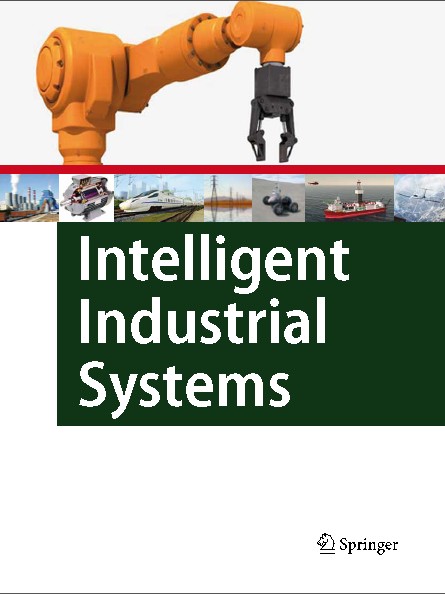
The focus of this research and academic endeavor is on the design of intelligent industrial systems through the synergism of several research areas, such as control,
estimation and sensor fusion, fault diagnosis, optimization and machine intelligence. Incorporating intelligence in industrial systems can help to increase productivity,
cut-off production costs, and to improve working conditions and safety in industrial environments. This need has resulted in the rapid development of modeling and control
methods for industrial systems and robots, of fault detection and isolation methods for the prevention of critical situations in industrial work-cells and energy production
plants, of optimization methods aiming at a more profitable operation of industrial installations and of machine intelligence methods aiming at reducing human intervention
in industrial systems operation. Intelligence for industrial systems is characterized by two main features: (i) learning and (ii) uncertainty handling. Learning indicates
the capability of the industrial system to adapt its behavior according to operating conditions and to accumulate information from sensor inputs so as to make its functioning
ore efficient. Learning can be succeeded by gradient-based algorithms (neural and adaptive fuzzy systems, automata networks and intelligent agents) or gradient-free algorithms
(evolutionary and particle methods). Uncertainty handling is also important for successful operation of industrial systems since precise mathematical models are in several
cases intractable or the modeling procedure is on its own too complicated. Stochastic modeling can be performed in terms of possibilistic or probabilistic models and
stochastic estimation algorithms. It is anticipated that this research initiative will disseminate to the scientific and engineering community systematic methods for the intelligent modelling and control of
complex industrial systems, such as:
- Industrial Robots
- Manufacturing and production management
- Mobile robotics and autonomous vehicles
- Mechatronics and electromechanical systems
- Networked-control for industrial systems
- Electric Motors, actuators and tractions systems
- Electric Power Generation
- Electric Power transmission and distribution
- Power Electronics and power conversion
- Distributed Parameter Systems for industrial applications
- Communication Systems for industrial applications
- Industrial technology for micro and nano systems
- Industrial technology for biosystems
This research initiative aims at addressing the need to design industrial systems with intelligence, autonomous decision making capabilities,
and self-diagnosing properties. Intelligent robots play a critical role in several production and manufacturing tasks. Moreover, the use of
intelligent autonomous systems becomes more demanding in transportation and avionics, in the development of infrastructures, in the processing
of agricultural production as well as in other emerging fields associated with electronics, biotechnology and nanotechnology. Another major
direction in the area of intelligent industrial systems is energy production. The liberalization of the energy market, the increased demand
in power and the operation of the power grid under variable conditions make imperative the incorporation of intelligence in the control of
power generation units as well as in the control of electric power transmission and distribution systems.
Objectives:
It is aimed to arrive finally at industrial systems supplied with intelligence, autonomy, self-tuning and self-diagnosis features.
The area of intelligent industrial systems will keep on growing and there will be intensive need for publishing new results in the field.
Providing efficient solutions to control problems associated with several electromechanical systems used in industrial production, in
transportation systems, in agriculture, in electric power generation and in several other applications will help to increase productivity,
cut-off production costs, improve working conditions and safety and in general improve the quality of living. It is also aimed to disseminate
to the scientific and engineering community systematic methods for the design of complex industrial systems. This research initiative supports
results on control, filtering and optimization methods that will be generic and applicable to wide classes of industrial systems.
Related results are expected to improve the functioning of several critical engineering systems and are likely to be a useful reference
not only for the control and robotics or the electric power systems community, but also for researchers and engineers in the fields
of signal processing, computational intelligence and mechatronics.
- Dr. Gerasimos Rigatos, Research Director, Unit of Industrial Automation, Industrial Systems Institute, Greece
email: grigat@ieee.org